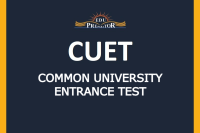
Difference between Vocational and Traditional Courses with emphasis on DU and role of CUET
Difference between Vocational and Traditional Courses with emphasis on DU and role of CUET
The landscape of higher education offers a plethora of choices for students graduating from high school. Among these options, traditional degrees and vocational degrees stand out as two primary pathways. Understanding the differences between these paths is crucial for students making informed decisions about their futures. The fundamental distinction between traditional degree programs and vocational degrees lies in their focus: traditional degrees emphasize theoretical knowledge and a broad-based education, while vocational degrees prioritize practical, occupation-specific training.
Vocational Degrees
Vocational courses are designed to provide students with practical, on-site experience, making them job-ready upon completion. The curriculum in vocational education is structured to emphasize hands-on training over classroom lectures. For instance, a student training to become a skilled tradesperson would spend more time working on real-world projects than attending theoretical classes. This approach ensures that graduates have a wealth of work experience, giving them a competitive edge in the job market. Vocational education typically includes a combination of practical training and some theoretical instruction.
Traditional Degrees
In contrast, traditional degree programs such as those offered at DU, including B.A., B. Com, and other similar degrees, follow a more comprehensive academic approach. These programs are predominantly theory-based, with classroom instruction forming the core of the curriculum. Students gain knowledge through lectures, case studies, and theoretical exploration of subjects. Practical exposure is often limited to internships, where students might encounter a disconnect between academic learning and real-world application. Traditional colleges, including DU, provide a broad-based education across various fields such as science, arts, humanities, and social sciences. This approach encourages critical thinking, research skills, and a deep understanding of concepts. Although the initial practical experience might be limited, the extensive academic foundation prepares students for a wide range of career opportunities and higher education pursuits.
Vocational Courses at DU
Delhi University has recognized the importance of vocational education and offers several vocational courses designed to equip students with practical skills and industry-specific knowledge. These courses include B.A. (Vocational Studies) Human Resource Management, B.A. (Vocational Studies) Management and Marketing of Insurance, B.A. (Vocational Studies) Marketing Management and Retail Business, B.A. (Vocational Studies) Material Management, B.A. (Vocational Studies) Office Management and Secretarial Practice, B.A. (Vocational Studies) Small and Medium Enterprises and B.A. (Vocational Studies) Tourism Management most of which are offered by College of Vocational Studies-University of Delhi(CVS-DU) while some courses like B.Voc. Banking Operations and B.Voc. Software Development are offered by Ramanujan College. DU's vocational programs aim to bridge the gap between academic learning and industry requirements, ensuring that graduates are job ready and can seamlessly transition into the workforce.



Comments
Nam cursus tellus quis magna porta adipiscing. Donec et eros leo, non pellentesque arcu. Curabitur vitae mi enim, at vestibulum magna. Cum sociis natoque penatibus et magnis dis parturient montes, nascetur ridiculus mus. Sed sit amet sem a urna rutrumeger fringilla. Nam vel enim ipsum, et congue ante.
Cursus tellus quis magna porta adipiscin
View All